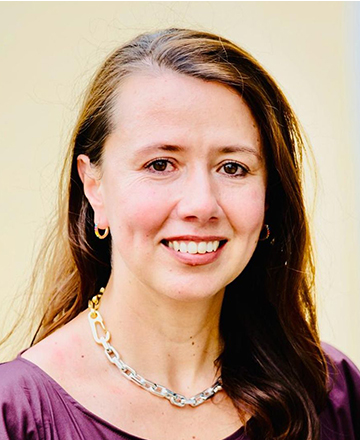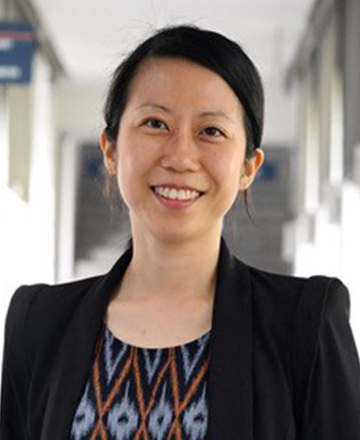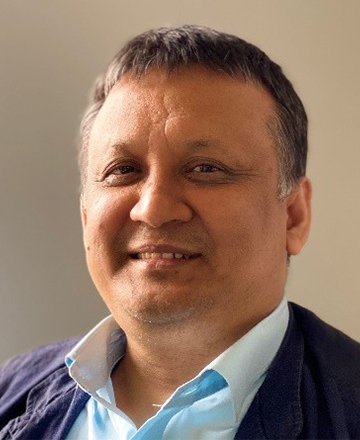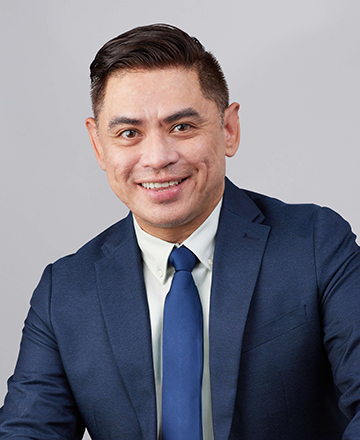Healthy Cities by Design: Green Infrastructure and Climate Resilience
This 90-min webinar explores how cities can use climate-responsive design and digital innovation to build healthier, more resilient urban environments.
Lecture Details
Healthy Cities by Design: Green Infrastructure and Climate Resilience
22 Jul 2025
11.00 AM - Istanbul
4.00 PM - Singapore
2.00 PM - Dhaka
Zoom Webinar
This webinar has ended.

Lecture Video

Synopsis
This webinar series is a joint initiative under the recently signed MoU between Singapore’s Centre for Liveable Cities and the UNDP Singapore Global Centre. It aims to leverage the expertise and networks of both institutions to create sustainable cities and deploy innovative urban solutions.
This 90-minute webinar will explore how cities can harness digital innovation and climate-responsive design as part of a systems approach to sustainable and health-sensitive urban health, with a particular focus on developing cities. As climate threats intensify—exacerbating urban heat, air pollution, and extreme weather—integrating resilient infrastructure and nature-based solutions becomes crucial for protecting public health. This session will facilitate cross-sector dialogue, providing a platform for local and city governments, urban experts, and development practitioners to share best practices, draw insights from diverse initiatives, and inspire innovative, wellness-oriented solutions for more liveable cities.
Lecture Report
The webinar stems from a collaboration between the CLC and UNDP and is part of a webinar series where CLC and UNDP bring together city leaders, urban experts, and practitioners to share forward-thinking strategies and practical solutions. The goal is to bridge research, policy, and real-world implementation, so that cities are not just resilient, but also inclusive, healthy, and future-ready.
As cities around the world confront intensifying climate threats, it has become more important than ever to design urban environments that protect both people and planet. From extreme heat to worsening air quality and sudden weather events, we know that these risks do not affect everyone equally, and often hit vulnerable communities the hardest.
As such, the webinar focused on how cities can take a proactive, health-sensitive approach to climate resilience by exploring how nature-based solutions, resilient infrastructure, and thoughtful urban design can not only mitigate climate risks, but also improve the overall wellbeing and liveability of our communities.
Each speaker (listed below) first delivered their presentation, and the presentations were followed by a moderated discussion with the audience.
Opening Remarks:
Ms Diana Torres, Regional Governance Advisor, UNDP Bangkok Regional Hub
Moderator:
Mr Stewart Tan, Deputy Director, Centre for Liveable Cities
Speakers:
Dr Tan Shin Bin, Assistant Professor, Lee Kuan Yew School of Public Policy
Mr Yugesh Pradhanang, International Programme Manager, UNDP Bangladesh
Ms Cristina Kuo Lin, Divisional Director, Atelier Ten, a Surbana Jurong company
Dr Tan Shin Bin’s Presentation: Centering Equity in Healthy Cities
Conceptual foundations of the link between environment, health, and equity
Shin Bin opened the session by introducing the ecological model of health, which illustrates how various environmental scales, from neighbourhood settings to global ecosystems, interact to shape human health. This model calls on planners and policymakers to examine not just individual-level risk factors, but the systemic and institutional forces that shape health outcomes.
Shin Bin stressed that health inequities are not unfortunate accidents but preventable outcomes. Despite broad economic growth in many countries, health gaps are widening. Life expectancy can differ by decades depending on one’s geography or social identity, including income, race, or education. Without explicit equity-focused interventions, urban development risks entrenching these divides, even under the guise of progress.
An example she raised was heat stress: lower-income and minority communities tend to live in hotter parts of the city, with reduced access to cooling infrastructure (e.g., green spaces or air conditioning) and lower adaptive capacity (e.g., mobility, healthcare access, and social support). This spatial and social vulnerability exemplifies how environmental and health injustice compound each other.
Four Key Action Areas for Urban Planners
To address these interconnected challenges, Shin Bin suggested four priority actions for planners:
Advance context-sensitive research: Health-environment relationships are complex and require research that combines spatial, qualitative, and quantitative approaches grounded in local context.
Build cross-sectoral Partnerships: Urban planning must break out of its disciplinary silo and work alongside public health, housing, and social services agencies.
Co-design across disciplines: Interventions should be collaboratively developed, leveraging input from affected communities and expertise across fields.
Embed participatory processes: Incorporating community decision-making from the start enhances the legitimacy, sustainability, and impact of planning decisions.
Mr Yugesh Pradhanang’s Presentation: Advancing the Resilience of Urban Poor Communities Through Locally Led Adaptation, Sharing UNDP Bangladesh’s Experiences
Building on this conceptual foundation, the discussion then expanded to consider how climate resilience can be built from the ground up.
Yugesh highlighted the UNDP’s experience in Bangladesh, where rapid urbanisation and climate-induced migration are pushing millions into vulnerable informal settlements. Projections suggest 13 million people will move from rural climate risk zones to cities by 2050. These communities face compounding threats, such as inadequate housing, limited services, and disproportionate exposure to flooding, heatwaves, and disease. Many local governments are also under-resourced, making community-driven approaches essential.
UNDP’s Approach: Inclusive Governance and Green Infrastructure
UNDP’s National Urban Poverty Reduction Programme operates across over 1,300 cities and towns, reaching more than 4 million people. It adopts a participatory, step-by-step model for locally led climate adaptation. Key interventions include permeable pavements and improved drainage to reduce flood risk, solar-powered lighting for safer, low-carbon public spaces, tree planting, raised toilets, and emergency evacuation routes, and decentralised water treatment and arsenic removal systems.
These solutions are tailored to local needs and managed by the community. Impact has been measurable: 1.9 million people benefited from improved environments, with 98% of households reporting better living conditions in UNDP areas, compared to 40% elsewhere.
Affordable, Climate-Resilient Housing Prototypes
Housing remains a key challenge. Through community financing mechanisms, UNDP supports residents in rebuilding climate-adaptive homes. These homes integrate passive cooling and reflective materials, storm and flood-resilient designs, and solar panels, rainwater harvesting, and efficient cookstoves.
In one innovation, ferrocement technology[1] enabled the construction of durable homes in just 32 days. Based on pilot success, the government is now co-developing low-cost social housing in five cities, incorporating green design, hollow bricks, elevated floors, and shared public spaces.
Bangladesh’s experience shows that embedding both “hardware” (physical infrastructure) and “software” (governance, community leadership) strengthens cities.
Ms Cristina Kuo Lin’s Presentation: Urban Heat Islands and the Role of Urban Design
Building on this ground up example, the discussion turned to how these health and equity concerns are revealed in the physical fabric of cities, particularly through the Urban Heat Island (UHI) effect.
Cristina first clarified the difference between climate change and the UHI effect. While climate change refers to global temperature rise due to greenhouse gas emissions, the UHI effect is a localised phenomenon caused by the materials and form of urban environments. Dense, impervious surfaces like concrete and asphalt trap heat, leading to temperature differences of up to 4°C between city centres and greener surrounding areas. Though UHI does not contribute to global warming, it is exacerbated by it, intensifying discomfort, health risks, and energy use in cities.
How Urban Form and Materials Trap Heat
Cristina explained that urban heat is experienced across three key layers: the surface layer, where different materials absorb and store heat; the canopy layer, where pedestrians directly experience thermal discomfort; the boundary layer, which holds residual atmospheric heat.
She demonstrated using thermal images from Singapore. On the same day, grassy areas measured around 39°C while adjacent asphalt peaked above 60°C. Material selection, therefore, plays a critical role. Urban forms with dense clusters and minimal sky exposure restrict airflow, worsening thermal stress. In contrast, vegetated, porous, and well-ventilated layouts cool faster and retain comfort longer.
Multi-Scale Mitigation Strategies
Cristina emphasised the need for coordinated interventions across multiple scales:
Micro scale: Design choices like facade shading, window orientation, and roof treatments.
Neighbourhood scale: Street geometry and block layout to maximise ventilation.
Urban scale: Spatial porosity, tower spacing, and integrated green-blue infrastructure.
In her design work, Cristina’s team uses solar radiation modelling and computational fluid dynamics (CFD) to simulate heat exposure and airflow in early planning stages, informing decisions on building massing, layout, and shading strategies.
Case Study: Clarke Quay
She showcased the redesign of Clarke Quay, a popular nightlife area that suffered from daytime heat. Thermal scans showed surfaces under the ETFE canopy reached over 40°C. The design team responded with 3 strategies:
Material change: Replacing the ETFE canopy with fritted panels to selectively block solar radiation.
Ventilation upgrades: Swapping conventional fans with 360-degree misting fans to enhance evaporative cooling.
Targeted shading: Prioritising shading over costly resurfacing.
These low-cost, high-impact interventions reduced ambient temperature by 2°C and restored the daytime usability of the precinct. Cristina concluded with a strong message: liveability begins with comfort, and comfort begins with design.
Moderated Discussion Segment
Building on the presentations, the moderated discussion segment examined shared challenges and emerging strategies to build environments that not only withstand climate pressures but actively support public health and social well-being.
In particular, the moderated discussion surfaced several key insights at the intersection of climate resilience, urban health, and long-term planning. Nature-based solutions were discussed as both aspirational and constrained. While panellists agreed that green infrastructure, like linked corridors between parks and water bodies, offers co-benefits for health, biodiversity, and resilience, they also cautioned against framing such interventions as cost-free. Land availability, maintenance needs, and competing development priorities present real barriers. Coordination challenges between government agencies, and low public awareness of long-term climate impacts, could further complicate implementation.
Healthy ageing was then identified as an under-addressed but critical component of climate adaptation. Shin Bin urged more context-specific planning to account for ageing populations, highlighting how living arrangements and health status shape vulnerability to heat and extreme weather. This requires systematic, data-driven assessments of how seniors interact with the built environment. Cristina added that current architectural evaluation tends to overemphasise operational efficiency (e.g., energy, water use) at the expense of more holistic health metrics, such as thermal stress, noise, and air quality. She and Shin Bin both advocated for urban design and planning practices to better integrate environmental and health data, enabling cities to identify and respond to localised vulnerabilities.
Cooling strategies that reduce reliance on air-conditioning were another key topic. Cristina pointed to new trends in Singapore, such as naturally ventilated malls and semi-open public spaces, as examples of targeted, low-energy cooling. In Bangladesh, Yugesh shared how simple, cost-effective designs like hollow brick housing can significantly reduce indoor temperatures for vulnerable households. Across contexts, the message was clear: passive design and adaptive urban form can make a measurable difference in heat resilience.
The speakers also emphasised the importance of tools, metrics, and long-term planning. Shin Bin cited Health Impact Assessments and equity screening tools as promising mechanisms, though their effectiveness is highly context-dependent. In Singapore, access to granular environmental and health data enhances their utility. Cristina suggested that climate simulation tools, especially those incorporating future climate projections, should be mainstreamed into the early stages of design and masterplanning. Yugesh highlighted Bangladesh’s use of a multidimensional poverty index and climate vulnerability maps to guide budgeting and implementation at the national and city levels.
Finally, the conversation turned to the importance of public-private collaboration and governance. Yugesh shared examples of peer learning among city governments and public-private partnerships on waste management and circular economy with actors like Unilever. Cristina reflected on Singapore’s experience with 50-year planning horizons, noting that such foresight helps align public goals with private sector incentives. She pointed to market sensing and clear performance targets as effective tools for engagement.
Despite broad agreement on the solutions, speakers acknowledged persistent barriers to implementation. These include siloed responsibilities, unclear accountability for cross-cutting issues like the urban heat island effect, budget cuts that dilute original design intent, and trade-offs between green space and development. Ultimately, while many interventions are technically sound and intuitively beneficial, delivering them at scale requires systemic changes to how cities govern, coordinate, and prioritise health and climate resilience.
[1] Ferrocement is a construction method that uses layers of wire mesh coated with a cement-sand mixture to create thin, strong, and lightweight structures.
About the Speakers

OPENING REMARKS
Diana Torres
Regional Governance Advisor, UNDP Asia and the Pacific
Diana Torres is the UNDP Regional Governance Advisor for Asia-Pacific, where she leads efforts to strengthen urban governance systems and support cities in advancing inclusive, sustainable, and resilient development. With over two decades of global experience in public sector reform and democratic governance across Latin America, the Asia-Pacific, and the Gulf, Diana brings deep expertise in institutional innovation, multilevel governance, and local accountability.
Since joining UNDP in 2008, she has spearheaded regional and national initiatives to promote open government, strengthen anti-corruption frameworks, and build dynamic governance capabilities. In recent years, she has focused on supporting cities in Asia-Pacific to navigate complex urban challenges by fostering peer learning, enabling collaboration, and helping local governments unlock tools, data, and partnerships that accelerate urban transformation.
Diana is passionate about cities as engines of opportunity and social progress. She champions future-ready governance models that anticipate risks, adapt to change, and enable inclusive decision-making. She plays a key role in UNDP’s work to connect city leaders, share cutting-edge solutions, and build capabilities that drive systemic change.
Diana holds a degree in Political Science and a Master’s in Conflict Resolution and Governance from the University of Amsterdam.

SPEAKER
Tan Shin Bin
Assistant Professor, Lee Kuan Yew School of Public Policy,
National University of Singapore
Shin Bin’s research focuses on how built environment interventions and public policy can improve social and health equity. Previously, she worked as an urban planner at the Urban Redevelopment Authority of Singapore. She obtained her PhD and Master in City Planning from the Department of Urban Studies and Planning, Massachusetts Institute of Technology in 2021.

SPEAKER
Yugesh Pradhanang
International Programme Manager, UNDP Bangladesh
Yugesh Pradhanang is a highly experienced development professional with over 20 years of expertise in urban development, local governance, and climate resilience. He has led impactful programmes across Afghanistan, Ukraine, Nepal, Bangladesh, and Georgia, primarily with the United Nations Development Programme (UNDP). His work focuses on building community resilience, promoting sustainable livelihoods, advancing gender equality, and driving climate adaptation in urban areas.
Currently serving as International Programme Manager at UNDP Bangladesh, Yugesh leads a major urban initiative across 19 cities, addressing urban poverty and climate vulnerability. His leadership has mobilised four million urban poor, empowered women leaders, and introduced innovative, community-driven infrastructure and affordable housing models for low-income families.
With a background in civil engineering and a Master’s in Sustainable Energy Systems, Yugesh integrates technical expertise with strategic development. He is known for his leadership in policy advocacy, resource mobilisation, and stakeholder engagement. His contributions include shaping Bangladesh’s National Urban Policy and developing tools like poverty mapping and vulnerability assessments to guide planning.
Yugesh’s inclusive, sustainability-focused approach and regional experience make him a key driver of urban transformation, governance reform, and climate resilience for vulnerable communities.

SPEAKER
Cristina Kuo Lin
Divisional Director, Atelier Ten, an SJ company
Cristina is a Divisional Director at Atelier Ten Singapore, where she leads climate-responsive design in tropical urban environments. Her work focuses on mitigating urban heat through integrated strategies that enhance outdoor thermal comfort, health, and well-being. In this session, she will share approaches to mitigating the Urban Heat Island effect and improving comfort conditions in tropical cities, and how thoughtful placemaking can foster healthier, more resilient urban life.

MODERATOR
Stewart Tan
Deputy Director, Centre for Liveable Cities
Stewart Tan (BBA/Hons, MSc/ Management from the National University of Singapore Business School) is Deputy Director of Research at the Centre for Liveable Cities, where he leads CLC’s Future Communities and Social and Behavioural Sciences research pillars. He is currently driving research in the areas of understanding and anticipating the future needs and aspirations of communities in response to societal shifts and built environment challenges, the development of novel social science methodologies in collaboration with academia and agency partners, as well as driving social and behavioural science application for the Urban Systems and Sustainability and Infrastructure and Environment sectors under the ambit of the Science of Cities Workgroup. Stewart also oversees the forging of research partnerships with local and international research thinktanks and institutes of higher learning. During his time in CLC, Stewart has produced several publications and book chapters for local and international audiences on the topics of housing, diversity and security.
